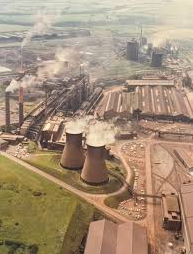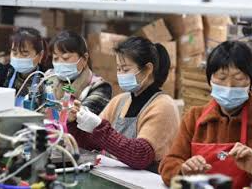
Closure plans risk ending 160 years of steelmaking in Scunthorpe as unions warn of national security concerns
British Steel has announced proposals to close its two blast furnaces and steel production facilities in Scunthorpe, jeopardising up to 2,700 roles and signalling the potential end of steelmaking in the area after more than a century and a half.
The steelmaker, controlled by Chinese firm Jingye, revealed that it will immediately begin discussions with staff and trade unions regarding possible redundancies, alongside plans to reduce the capacity of its steel rolling mill. If the closure proceeds, around 2,000 to 2,700 positions could be lost from the site’s total workforce of approximately 3,500.
Unions have described the move as “devastating” and warned that the UK risks becoming the only G7 nation without domestic primary steel production. Roy Rickhuss, general secretary of the union Community, emphasised that such a decision would pose a severe threat to Britain’s national security.
According to industry body UK Steel, the closure would dismantle essential production of rail steel, heavy sections, and light sections – key materials for transport, infrastructure, and construction – forcing British industries to rely on international suppliers.
British Steel explained that despite £1.2 billion invested by Jingye since acquiring the business in 2020, the Scunthorpe operation has continued to face unsustainable losses of £700,000 per day. Added pressures now include the recent 25% tariff imposed by the US on steel imports, alongside increasing environmental costs for high-carbon steel manufacturing.
The company outlined three possible timelines for closure: as early as June, in September, or at an unspecified future date. CEO Zengwei An acknowledged the distress caused, stating: “This is an incredibly difficult announcement, but one that reflects the serious financial challenges we confront.”
Union leaders and local officials have urged the government to intervene, with unions requesting an additional £200 million to keep the blast furnaces running until greener electric alternatives can be established. Reports indicate that a £500 million rescue offer from the government was declined by Jingye earlier this week.
Business Secretary Jonathan Reynolds recognised the anxiety facing workers and their families, but expressed optimism for the long-term future of British steel. He reaffirmed the government’s commitment to investing up to £2.5 billion in modernising the sector, adding that a comprehensive steel strategy would soon be released.
Unions Community, GMB and Unite have collectively called on ministers to step in, stressing the strategic significance of Scunthorpe’s plant. Unite’s national officer, Linda McCulloch, stated: “Losing the UK’s last blast furnaces would be catastrophic. The government must now act to prevent this.”
Rickhuss echoed the appeal, urging both Jingye and officials to resume talks, adding that the furnaces could still be retained temporarily if government support for a transition to low-carbon steelmaking were secured.










